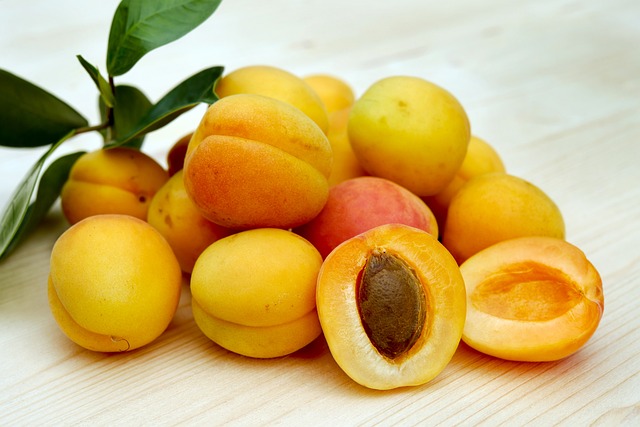Section 1: Introduction to Iron
Iron is an essential mineral that plays a crucial role in maintaining good health. It is required for the production of hemoglobin, a protein found in red blood cells that transports oxygen throughout the body. Iron also helps in the formation of myoglobin, a protein found in muscles that stores oxygen, and is involved in the production of ATP, the body’s primary energy source.
For health-minded plant-based people, it is important to understand the importance of including iron-rich foods in their diet to prevent iron deficiency anemia, a condition where there is a lack of iron in the body that results in fatigue, weakness, and shortness of breath.
In this blog post, we will discuss the importance of iron, the recommended daily intake, the best plant-based sources of iron, and how to optimize iron absorption in the body.
Section 2: Recommended Daily Intake of Iron
The recommended daily intake of iron varies depending on age, sex, and life stage. For adult men and postmenopausal women, the recommended daily intake is 8 milligrams (mg) per day. For women of childbearing age, the recommended daily intake is 18 mg per day due to the iron loss during menstruation. Pregnant women require even more iron, with a recommended daily intake of 27 mg per day.
It is important to note that excessive iron intake can be harmful, especially for individuals with hemochromatosis, a genetic condition where the body absorbs too much iron, leading to organ damage. Therefore, it is essential to follow the recommended daily intake and avoid taking iron supplements without medical supervision.
Iron from plant-based sources is less readily absorbed by the body than iron from animal sources. Therefore, plant-based people need to consume more iron than non-vegetarians to meet their daily requirements.
Section 3: Best Plant-Based Sources of Iron
Plant-based sources of iron include legumes, whole grains, nuts and seeds, dark leafy greens, and dried fruit. Here are some of the best sources:
Legumes: lentils, chickpeas, black beans, kidney beans, soybeans
Whole grains: quinoa, brown rice, barley, oatmeal, fortified cereals
Nuts and seeds: pumpkin seeds, sesame seeds, cashews, almonds, pistachios
Dark leafy greens: spinach, kale, collard greens, Swiss chard, beet greens
Dried fruit: apricots, raisins, prunes, figs
It is important to note that some plant-based sources of iron contain substances that inhibit iron absorption, such as phytates and tannins. However, consuming vitamin C-rich foods, such as citrus fruits, tomatoes, and bell peppers, can help enhance iron absorption. Cooking plant-based sources of iron or soaking them overnight can also increase iron bioavailability.
Section 4: Iron Deficiency Anemia
Iron deficiency anemia is a common condition among plant-based people, especially women of childbearing age. The symptoms include fatigue, weakness, shortness of breath, headache, and dizziness.
It is essential to consume enough iron-rich foods to prevent iron deficiency anemia. However, if you suspect you have iron deficiency anemia, it is crucial to see a healthcare professional for diagnosis and treatment.
Iron supplements can be prescribed to treat iron deficiency anemia, but they should only be taken under medical supervision as excessive iron intake can be harmful.
Section 5: Iron Overload
Iron overload is a condition where there is too much iron in the body, leading to organ damage. It is most commonly caused by a genetic condition called hemochromatosis, but it can also be caused by excessive iron supplementation or frequent blood transfusions.
The symptoms of iron overload include fatigue, joint pain, abdominal pain, and liver damage.
If you suspect you have iron overload, it is crucial to see a healthcare professional for diagnosis and treatment. Treatment may involve regular blood donations or iron chelation therapy, a treatment that removes excess iron from the body.
Section 6: Iron and Athletic Performance
Iron is essential for athletic performance as it helps transport oxygen to the muscles. Iron deficiency can lead to fatigue, reduced endurance, and impaired recovery.
Plant-based athletes need to consume enough iron-rich foods to meet their daily requirements. Iron supplementation should only be taken under medical supervision as excessive iron intake can be harmful.
It is also important to consume enough vitamin C-rich foods to enhance iron absorption and avoid consuming tea or coffee with meals as they can inhibit iron absorption.
Section 7: Iron and Pregnancy
During pregnancy, the body requires more iron to support the growth and development of the fetus. Iron deficiency during pregnancy can lead to premature birth, low birth weight, and developmental delays.
Pregnant women should consume iron-rich foods and consider taking iron supplements under medical supervision to meet their daily requirements. It is also important to avoid consuming tea or coffee with meals as they can inhibit iron absorption.
Section 8: Iron and Chronic Disease
Iron overload has been linked to chronic diseases such as heart disease, diabetes, and cancer. Excessive iron intake can lead to oxidative stress and inflammation, which can contribute to the development of chronic diseases.
Plant-based people who are at risk of iron overload, such as those with hemochromatosis or frequent blood transfusions, should limit their iron intake and avoid iron supplements without medical supervision.
Section 9: Conclusion
Iron is an essential mineral that plays a crucial role in maintaining good health. Plant-based people need to consume enough iron-rich foods to prevent iron deficiency anemia and optimize athletic performance, pregnancy outcomes, and overall health.
Consuming vitamin C-rich foods, cooking plant-based sources of iron, and avoiding tea or coffee with meals can enhance iron absorption. Iron supplementation should only be taken under medical supervision.




